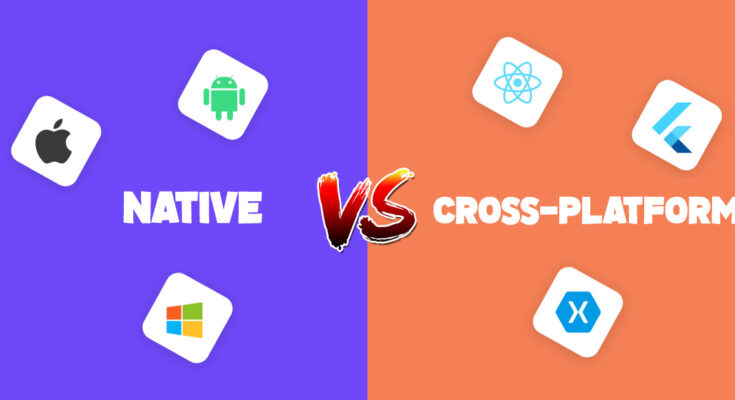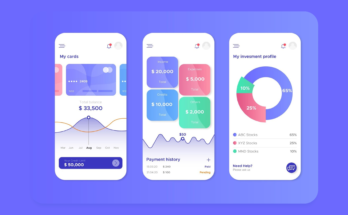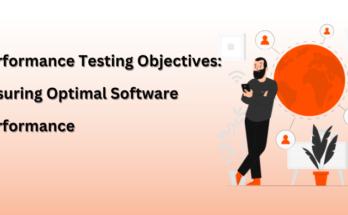Did you know that mobile apps are helping businesses grow and reach new customers around the world? The mobile app market will be worth $407.31 billion by 2026! But, when making an app, businesses must choose between Android and iOS platforms, the two biggest smartphone platforms.
Android is used by around 74% of people worldwide, while iOS is used by around 25%. But there’s also a new way to make apps called Cross-platform development. This lets businesses make an app that works on both Android and iOS using just one codebase.
To decide which way to make an app, businesses need to think about what they want their app to do and who they want to use. This will help them choose between making a Native app (which works only on one platform) or a Cross-platform app (which works on both platforms).
So, before we talk about the differences between the two, let’s first understand what a Native app is.
What is Native App Development?
Native app development is when developers create mobile apps specifically for one platform, like Android or iOS. They use software development kits (SDKs) and integrated development environments (IDEs) to create optimised apps for that specific platform. Java or Kotlin are typically used for Android native app development, while Swift and Objective-C are popular for iOS native app development.
These native apps can provide a superior user experience because they can take full advantage of the device’s features, such as the camera or GPS. They are typically more complex and are suitable for larger projects that require high performance and speed.
Examples of popular native apps include PokemonGo, Google Maps, Pinterest, WhatsApp, and Twitter.
What is Cross-Platform App Development?
Cross-platform app development involves creating an app that can run on multiple operating systems, such as Android and iOS, using a universal language. This approach allows for greater code reusability, which simplifies the development process and reduces costs.
Developers can use various cross-platform development tools like Flutter, Xamarin, Adobe PhoneGap, Appcelerator, or React Native to create apps compatible with multiple platforms.
Some popular examples of cross-platform apps include Instagram, Facebook, Walmart, and Bloomerang.
Now, let’s explore the differences between native and cross-platform app development.
Native Apps
- Architecture: Different apps for different platforms
- Target audience: Limited to specific platforms
- Code reusability: None
- Hardware accessibility: Complete hardware support
- Testing: Can be tested with tools in the framework or browser
- Speed and app performance: Rapid, responsive, and crash-free applications
- Team size: Big team size (different team for a different platform)
- Authorisation for the app store and Google Play: Simple and Easy
- Rendering Engine: Native
- Tools used: XCode, AppCode, Android Studio
- Cost: Higher
- Development time: Time-consuming as code is written for each platform
Cross-Platform Apps
- Architecture: One app for multiple platforms
- Target audience: Reach a large number of users
- Code reusability: 60% can be reused
- Hardware accessibility: Limited
- Testing: Varies from frameworks available
- Speed and app performance: Slower than native applications
- Team size: Small to mid-sized team
- Authorization for the app store and Google Play: The process of approving apps in respective stores can be lengthy
- Rendering Engine: Native
- Tools used: React Native, Flutter, Xamarin
- Cost: Cost-effective
- Development time: Time-saving as code is reusable
Now, let’s discuss the advantages and disadvantages of native and cross-platform mobile app capabilities.
Pros and Cons of Native App Development
Advantages of Native App Development
- Faster and more efficient performance: Native apps are written in programming languages that are specific to each platform, which means they can use all of the device’s processing power. This makes them faster and more responsive, with shorter load times.
- Access to all device functionalities: A native app has access to all of the features and capabilities of a device, including all native APIs. This makes it easier to develop complex mobile applications.
- Easier to publish: Native apps follow the standards of iOS and Android by default, making them easier to publish in the app store.
- Better user experience: Native apps can provide a rich and intuitive user experience with a consistent look and feel. This makes them a good choice for creating apps that are easy to use and engaging.
Disadvantages of Native App Development
- It’s Costly: Building native apps can be expensive as they need two teams to develop the respective apps for different platforms.
- It’s Time-consuming: Native app development takes longer since the work done on one platform cannot be replicated on another. So, a different team’s assistance will be required to work on the other platform.
- Maintenance and updates can be challenging: Maintaining multiple builds for different platforms that need continuous support and updates can be challenging, as it involves working with multiple teams and introducing new features or upgrades.
Advantages & Disadvantages of Cross-Platform App Development
Advantages of Cross-Platform App Development
- Lower Cost: Developing a cross-platform app requires a single team to create an app that can run on multiple operating systems. This eliminates the need for two separate development teams and results in cost savings.
- Time to market is reduced: By utilizing this approach, developers can improve the speed of development and deliver the final product to the market faster.
- Faster Development, Easy App Support, and Maintenance: Since a single codebase is used, reusing code is faster than writing it from scratch. By using a cross-platform framework, the team can quickly and easily update the app, add new features, and make changes to both iOS and Android platforms at the same time, which results in better support and maintenance.
Disadvantages of cross-platform app development
- Limited Functionality: Cross-platform apps may not have access to all smartphone functionalities, limiting the overall user experience.
- Difficult Integrations: Integrating cross-platform apps into local settings can be challenging due to the complexity of HTML 5 code.
- User Experience Issues: Cross-platform apps may not be able to fully utilize native-only capabilities, which can impact the user experience.
Native vs Cross-platform App Development: Which One to Choose for Your Project?
When it comes to developing mobile applications, businesses have two main options: native app development and cross-platform app development. Both have their own advantages and disadvantages, and choosing the right one for your project can be a crucial decision.
Choose native app development if you:
- Want the most responsive software
- Have no financial limitations
- Want to provide an exceptional user experience
- Need your app to operate without Internet access
- Are thinking of a long-term app that needs to be maintained and enhanced with a lot of new features added over time
- Require complete access to phone resources
Choose cross-platform app development if you:
- Need to build your application more faster and more cost-effectively
- Want to test an idea or prototype across multiple platforms
- Want code reusability between iOS and Android and cross-platform compatibility
- If your app does not require high CPU and GPU usage, such as sophisticated animations or complex logic to function
In the end, choosing between native and cross-platform app development ultimately relies on the specific requirements of your project. By understanding the pros and cons of each approach, you can make an informed decision that will lead to the best possible outcome for your mobile application.
Final Words…
To sum it up, both native and cross-platform app development have their advantages and disadvantages. The decision on which platform to use depends on the project requirements and the developer’s skills.
Native apps are ideal for better user experience and performance, despite the high cost. Cross-platform development is faster and more cost-effective, but it may be challenging to deliver a great user experience on each platform.
If you are still unsure which platform to choose, it is advisable to seek professional advice from a mobile app development company with powerful AI services before starting your project and expanding your business further.
Author bio:

Vishnu Narayan is a content writer, working at ThinkPalm Technologies, a software & mobile app development services company focusing on technologies like BigData, IoT, and AI services. He is a passionate writer, a tech enthusiast, and an avid reader who tries to tour the globe with a heart that longs to see more sunsets than Netflix!




